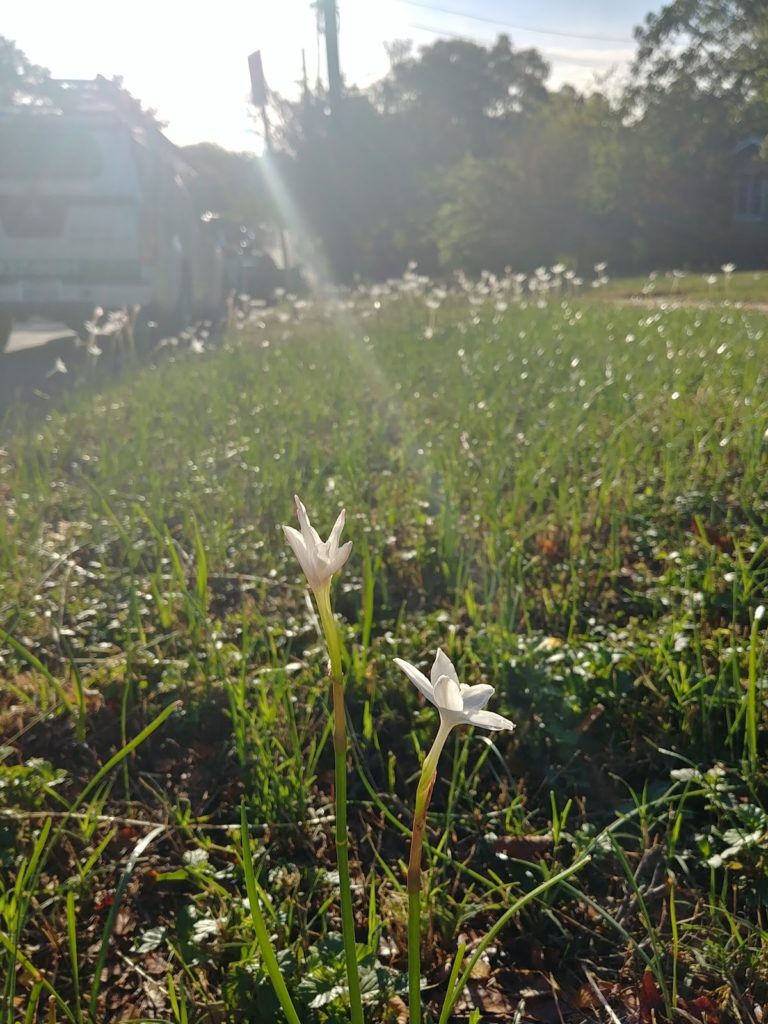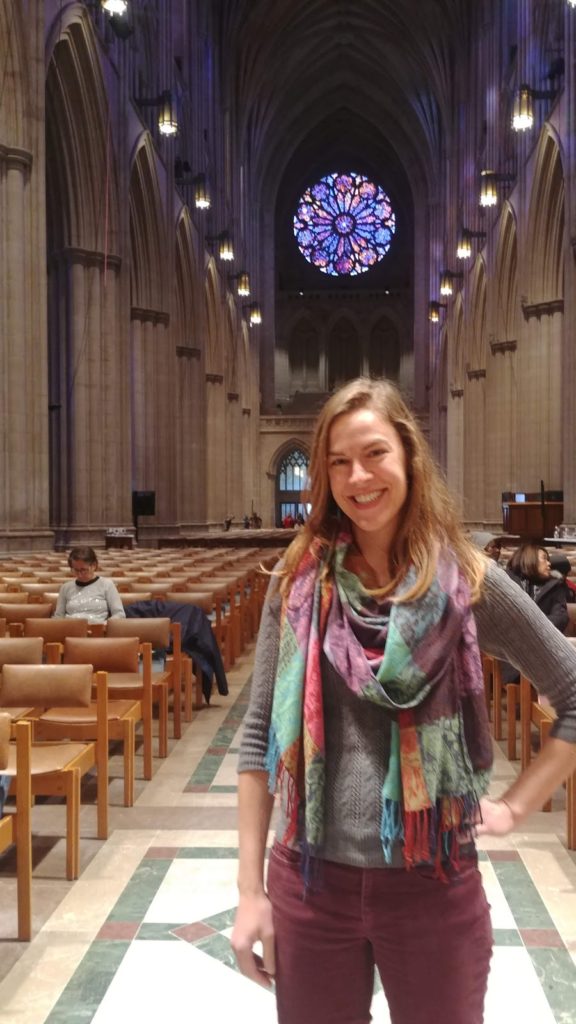
When I was in college at the University of Rochester, I participated in an environmental awareness and activism group called Grassroots. Grassroots had a clever name and was a place where I could learn and share about the environment and connect with likeminded people. We had several subcommittees in Grassroots, and I became involved with the Graduation Pledge Alliance. Signing this pledge was a commitment to “explore and take into account the social and environmental consequences of any job I consider and [to] try to improve these aspects of any organizations for which I work.”*
I would set up camp in the student commons with a clipboard and a box of green ribbons and talk to anyone who would listen to me and a few who wouldn’t. As a language major interested in teaching French or Spanish, it was a relatively easy commitment for me to make, yet classmates who were engineers faced more nuanced decisions. I could sidestep thinking seriously about the social and environmental consequences of my job because I had chosen a “helping profession,” but some of my classmates spent considerable time thinking about their values and aligning them with potential employment offers.
In recent months, however, I’ve learned as a seminarian that being a Christian requires some hard choices, after all. Being a Christian puts me in a place where I must make difficult decisions about how I interact with the world. During my first semester in seminary, most of my discernment focused on what it meant for me to be a seminarian: settling into a new place, being back in the student seat after years of being a teacher, and having more reading than I could complete each week. My second semester in seminary has brought a more difficult challenge: what does it mean to be a Christian?
I stumbled upon this question as I lamented my own lack of response to the migration crisis on the border during my January Encuentro class. By remaining uninformed about issues facing migrants in their journey to and once in the United States, I had allowed myself to ignore the crisis that was happening near my home in both Colorado and in Texas. The more I learned, the more I realized that as a Christian, I felt compelled to act in a just way. I began to learn about organizations in Austin that are helping to educate people about the migration crisis so that they can join efforts to stand in solidarity with recent immigrants. We visited Casa Marianella in Austin, an organization that welcomes immigrants and promotes their self-sufficiency by providing shelter and support services. During our tour of their campus, I spoke with some women from the Democratic Republic of Congo. As I was about to leave, an elderly woman looked me in the eyes and asked, “But are you coming back?”
Those words stayed with me as I left Casa Marianella and finished up the Encuentro program. I recognized that being a Christian wasn’t about a one time visit or donation to learn more; it implied a commitment to standing and working aside other people. As I transitioned to the second semester, I explored opportunities to volunteer with Grassroots Leadership. A different grassroots effort than that of my college years, this organization works with communities to abolish for-profit private prisons, jails, and detention centers.
As the semester continued, I kept thinking about what it meant to live as a Christian. In Biblical Studies II, we learned that the Jesus movement was political right from the start and that following the gospel was an act of resistance against the Roman Empire. The movie “Ay, Mariposa,” sponsored by the Latinx Studies department, helped me realize the interconnectedness of the migration crisis and the environmental crisis. Speaking with the filmmakers after viewing this film showed me the importance of faith when up against an overwhelming challenge. My readings of Ernesto Cardenal’s “The Gospel of Solentiname” in my Spanish conversation class also helped me imagine new ways of living that made living the gospel political.
In March, just as a classmate and I had begun to explore volunteering at Casa Marianella, the spread of COVID-19 required me and everyone around the nation to limit our actions in the community and to shelter in place at home. I was working toward living a Christian life, but I had encountered a stumbling block: What does it mean to accompany someone if I cannot physically walk with them?
In this global challenge of COVID-19, I am forced to recognize my own privilege as someone who is able to stay home and study while other people care for their families while working full time, must leave to do essential work, are laid off, or may not have somewhere safe to shelter in place. Social inequalities that were present before have become exacerbated by COVID-19. What difference can I make while quarantined in my own house?
With the help of some friends, I’ve come up with a few ways that I can continue to live as a Christian even now. I can reach out to others from my own house and I can care for myself in the here and now. As I try to find joy in the little things, I keep in mind that when the rebuilding begins, we Christians will have a lot of work to do.
Outward-Reaching Actions
- Reach out to friends and family who live alone or who are vulnerable
- Share a special talent with others online
- Call your senators and representatives to speak up on important issues. Check out resources like the Americans of Conscience Checklist for tips on issues currently in congress and how to frame your concerts to your elected officials
- Donate to a local organization that is collecting food or clothing. (If you’re in Austin, Casa Marianella is currently looking for the following items: tomato sauce and diced tomatoes, cornmeal, potatoes, dried beans and lentils, chicken broth/stock, eggs, lysol, paper towels, toilet paper, bleach and other general cleaning supplies.)
- Sew face masks for others
Inward-Looking Actions
- Continue spiritual practices that you find lifegiving
- Limit the amount of news media and social media you consume daily
- Connect with people you love
- Do something active every day
- Be okay with being good enough
How is God calling me as a Christian to serve others in the climate of COVID-19?
What small commitment can I make as a Christian to do something differently in the months to come?
* http://www.graduationpledge.org/

Sasha Bilow is a Junior MDiv student, from the Diocese of Colorado.

